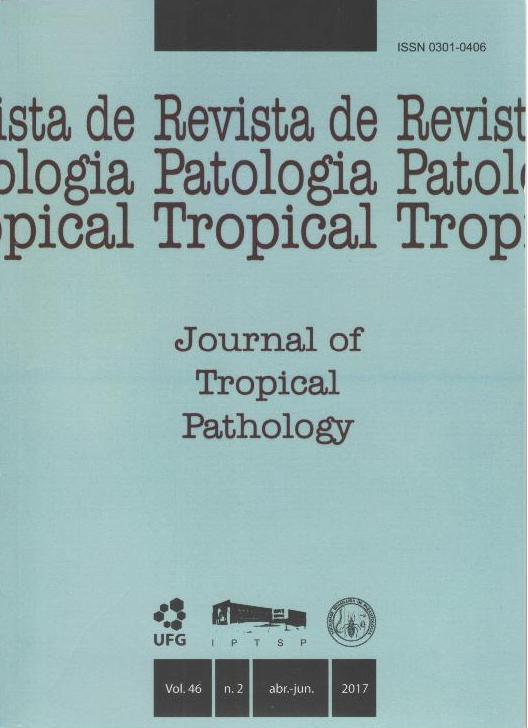EXPERIMENTAL STUDY OF NEURAL PLASTICITY IN CHAGASIC MEGACOLON IN RATS
DOI:
https://doi.org/10.5216/rpt.v46i2.47682Keywords:
Chagas disease, megacolon, enteric nervous systemAbstract
This is a cross-sectional and experimental study. The purpose of the study was to measure enteric neurons in rats with chagasic megacolon. Twenty-three male rats inoculated with 1,500,000 trypomastigotes of the Y strain of Trypanosoma cruzi were used. The animals were sedated intramuscularly at zero inoculation time (T0 ) and at sixty days after inoculation (T60), to perform a barium enema test to evaluate the dilatation of the different segments of the colon. Evidence of infection was performed with a blood smear collected from the animals’ tails 18 days after inoculation with observation of blood forms. Membrane preparations underwent dual-label immunofluorescence of global and nitrergic neurons with HuC / HuD antibody and nNOS antibody, respectively. Subsequently, quantitative and morphometric analysis of cecal and proximal colon segments were performed. In the quantitative analysis of the proximal colon segment there was a significant decrease in the numbers of total neurons (Hucolo p=0.001), as well as in the number of nitrergic neurons (NOScolo p=0.032) in the population of rats with chagasic megacolon in relation to the control group. In the cecal segment, this difference was not observed in the result of the total neuron counts (Huceco p=0.289) and nitrergic neurons (NOSececo p=0.466). In the morphometric analysis, considering only the cell body area, a significant difference in the size of the neurons with p=0.000 was observed in the cecal segment. The extensive loss of total neurons that cause predominance of nitrergic neurons contributes to the development of megacolon and neuronal volume increase in the cholinergic neurons, this plasticity does not reestablish the lost equilibrium, causing megacolon.Downloads
Downloads
Published
How to Cite
Issue
Section
License
The manuscript submission must be accompanied by a letter signed by all authors stating the full name and email address, confirming that the material has not been published or is under consideration for publication elsewhere, and agreeing to transfer copyright in all media and formats for Journal of Tropical Pathology. The authors will not be paid for published articles. They are solely responsible for the content of those articles, even if the Editor holds the right to adjust them to the norms of the journal.
The reviewers will not be paid for the peer review process.

